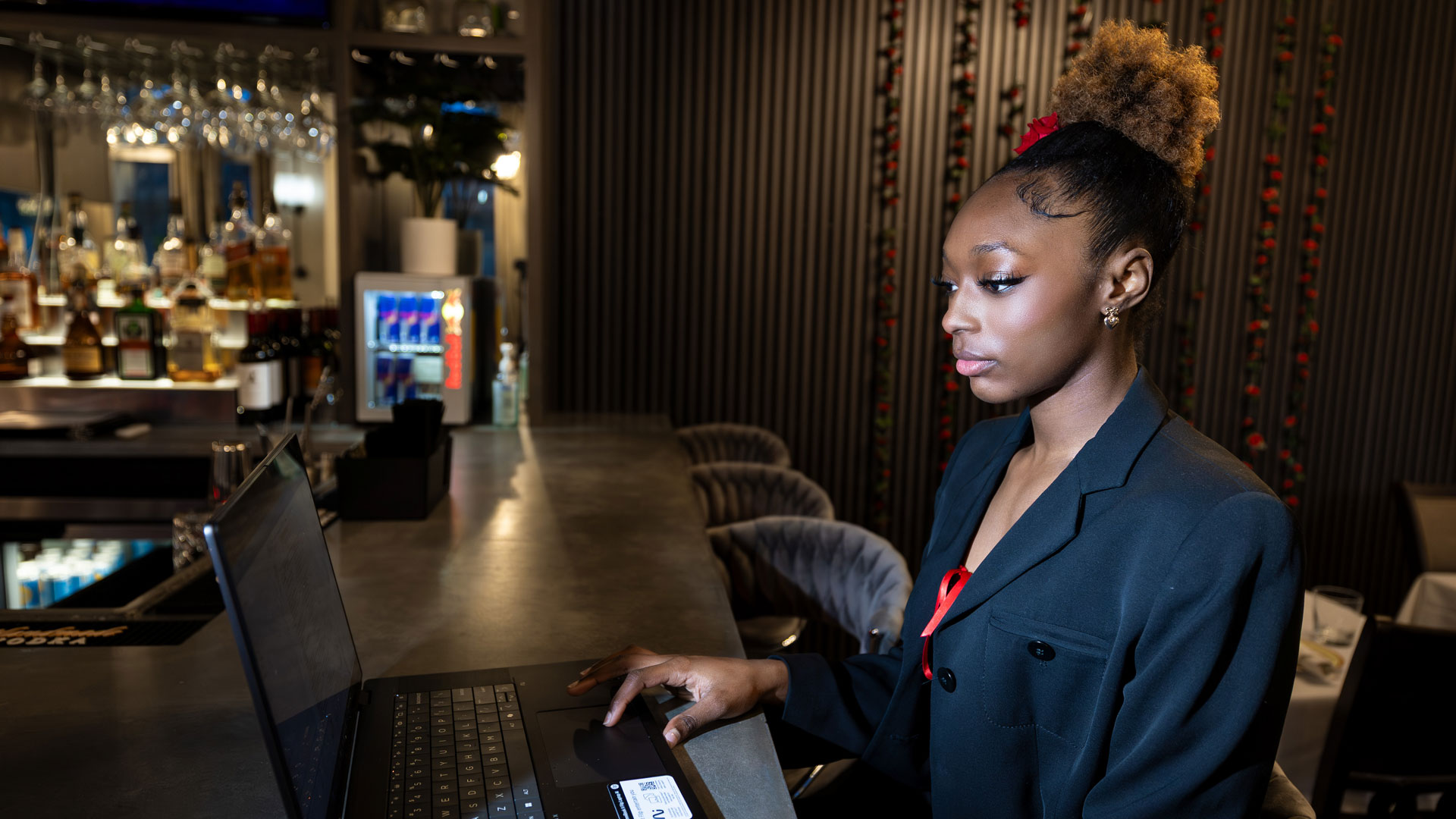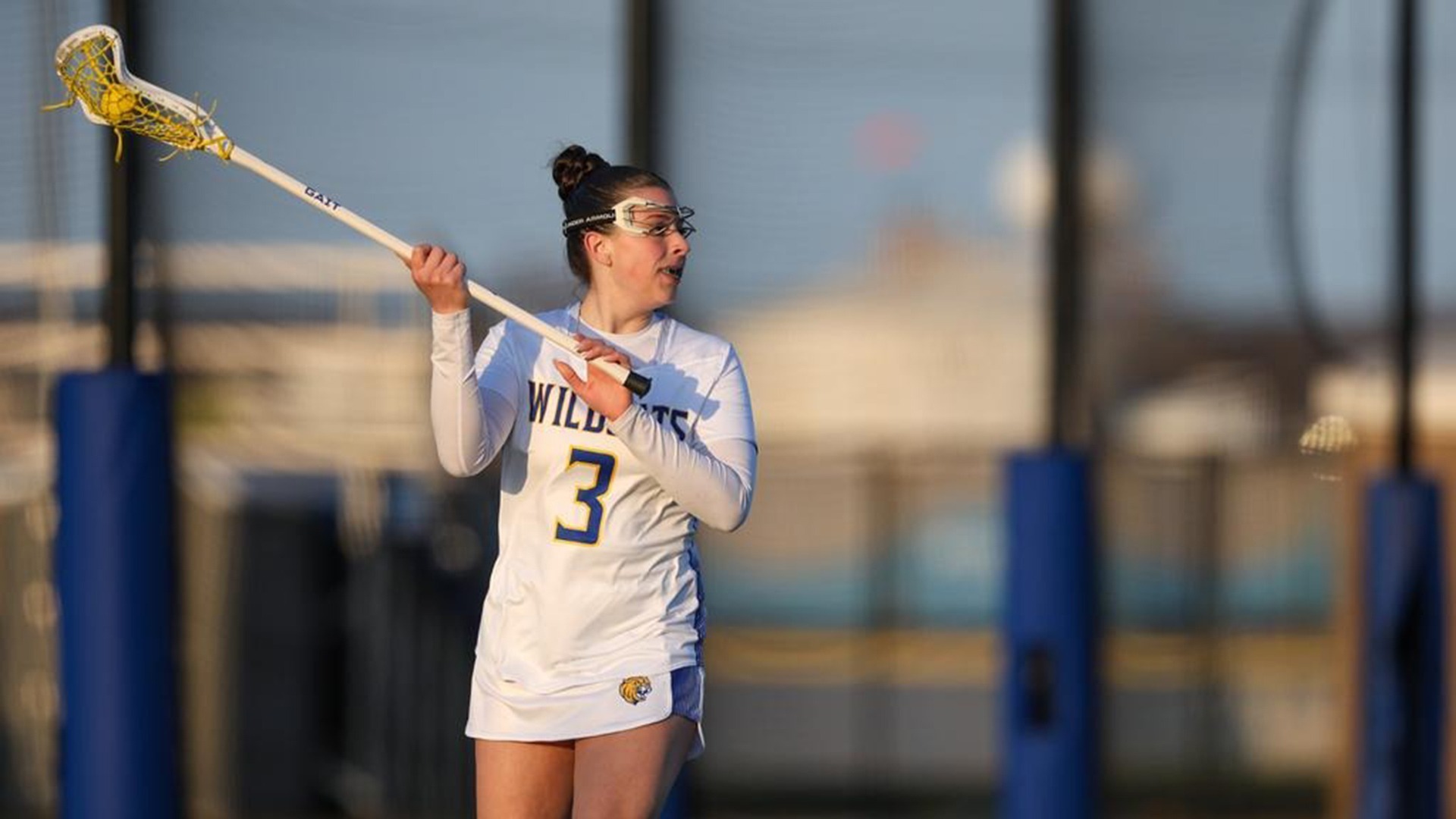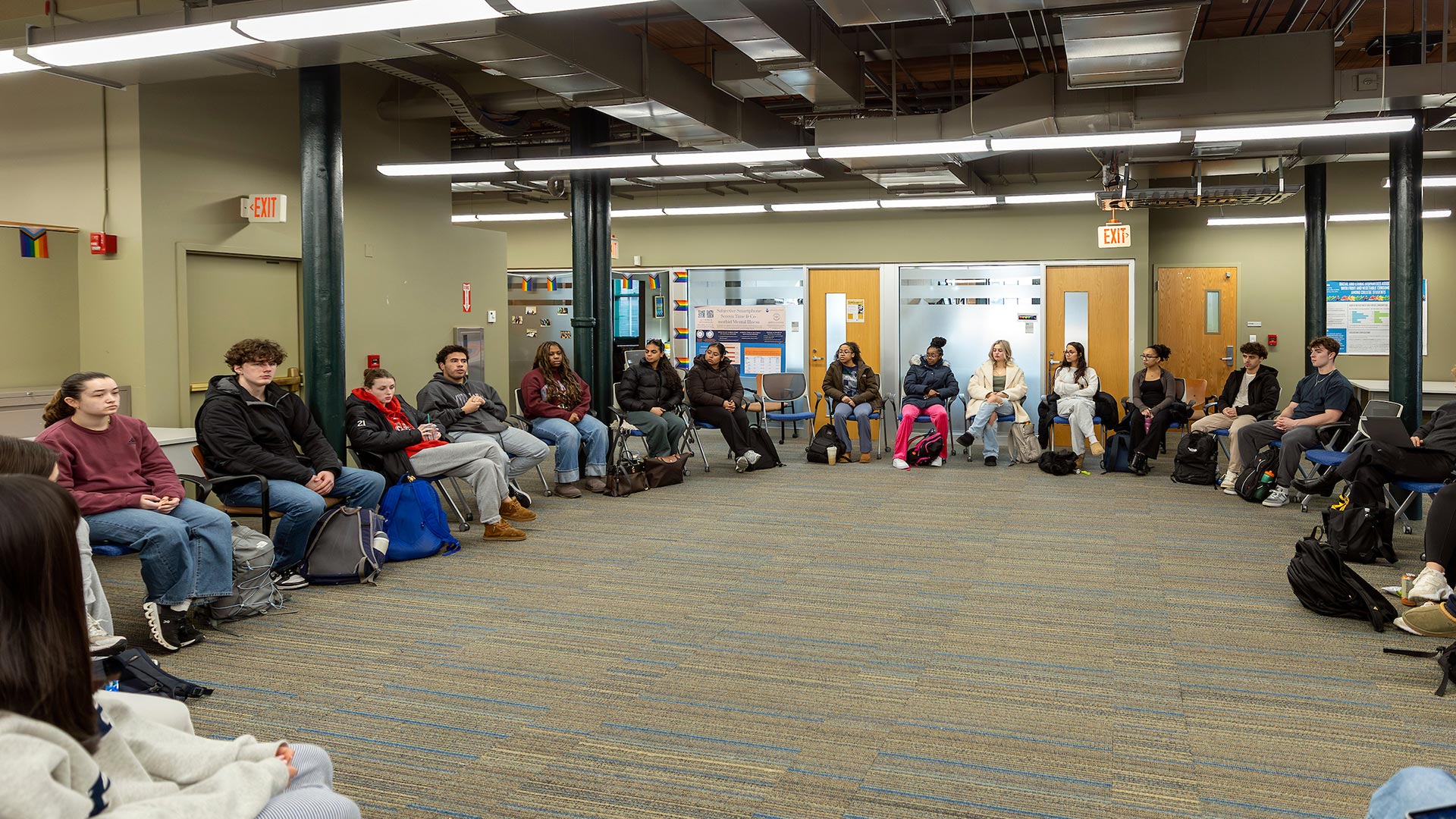My Life as a Student–Athlete: Inside Women’s Volleyball at JWU
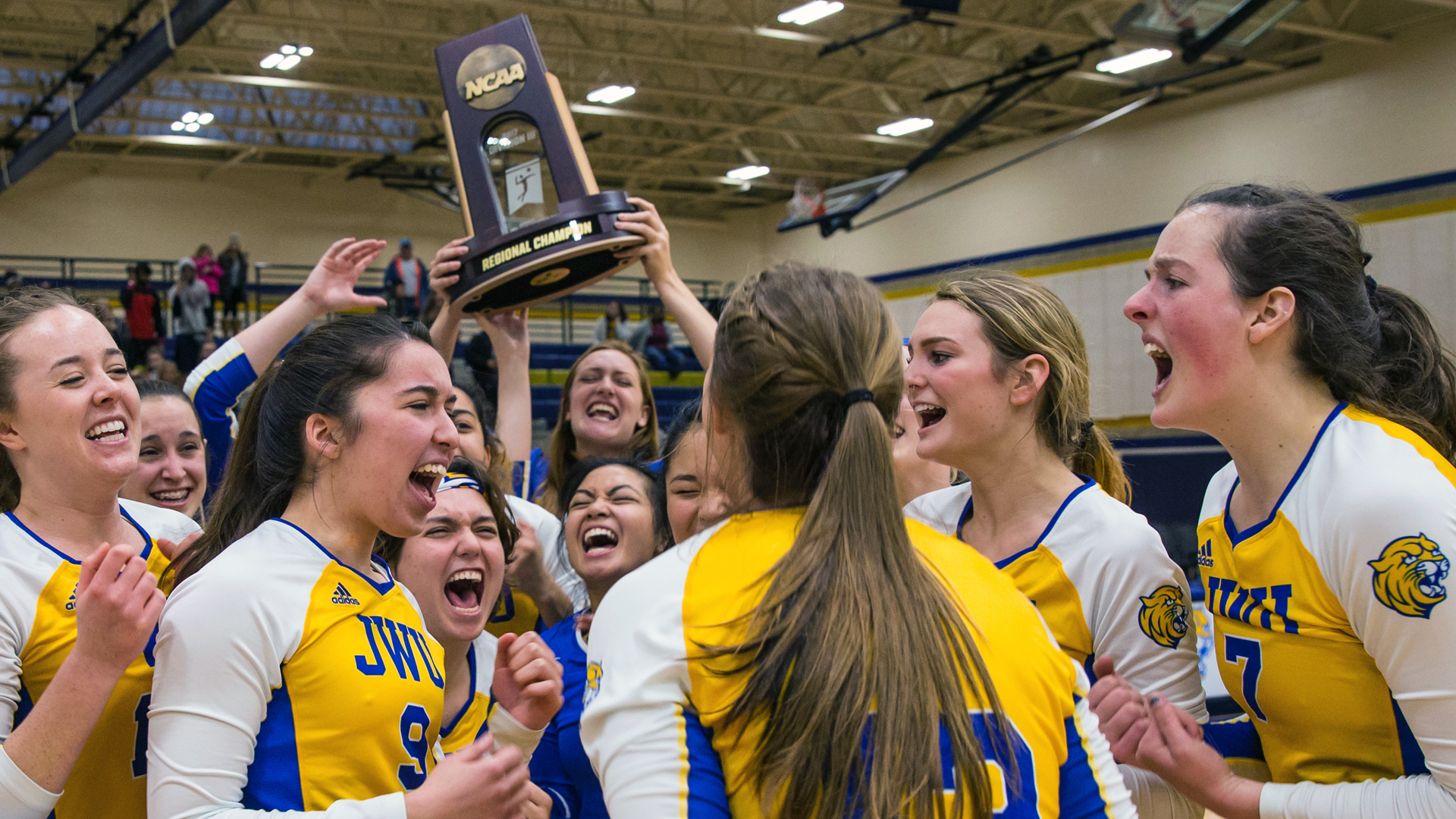
Two-time All-American and Academic All-American Kate (Katherine) Walker is one of the top hitters in the country for women’s volleyball. Walker and her teammates make up the JWU Wildcats women’s volleyball team, which ranked second in the country for the 2018 NCAA Tournament and claimed its fourth-straight GNAC Championship. The team’s coach, Nancy Somera, was named GNAC Coach of the Year. Way to go Wildcats!
In between the awards, tournaments and moments of glory, the life of a student-athlete is anything but laid-back. The pace is breakneck and the students hustle to fit everything in — games, practices, classes, homework, internships, student clubs, exams, and when possible, a social life. Kate gives us a look at that life — her life — on and off the court.
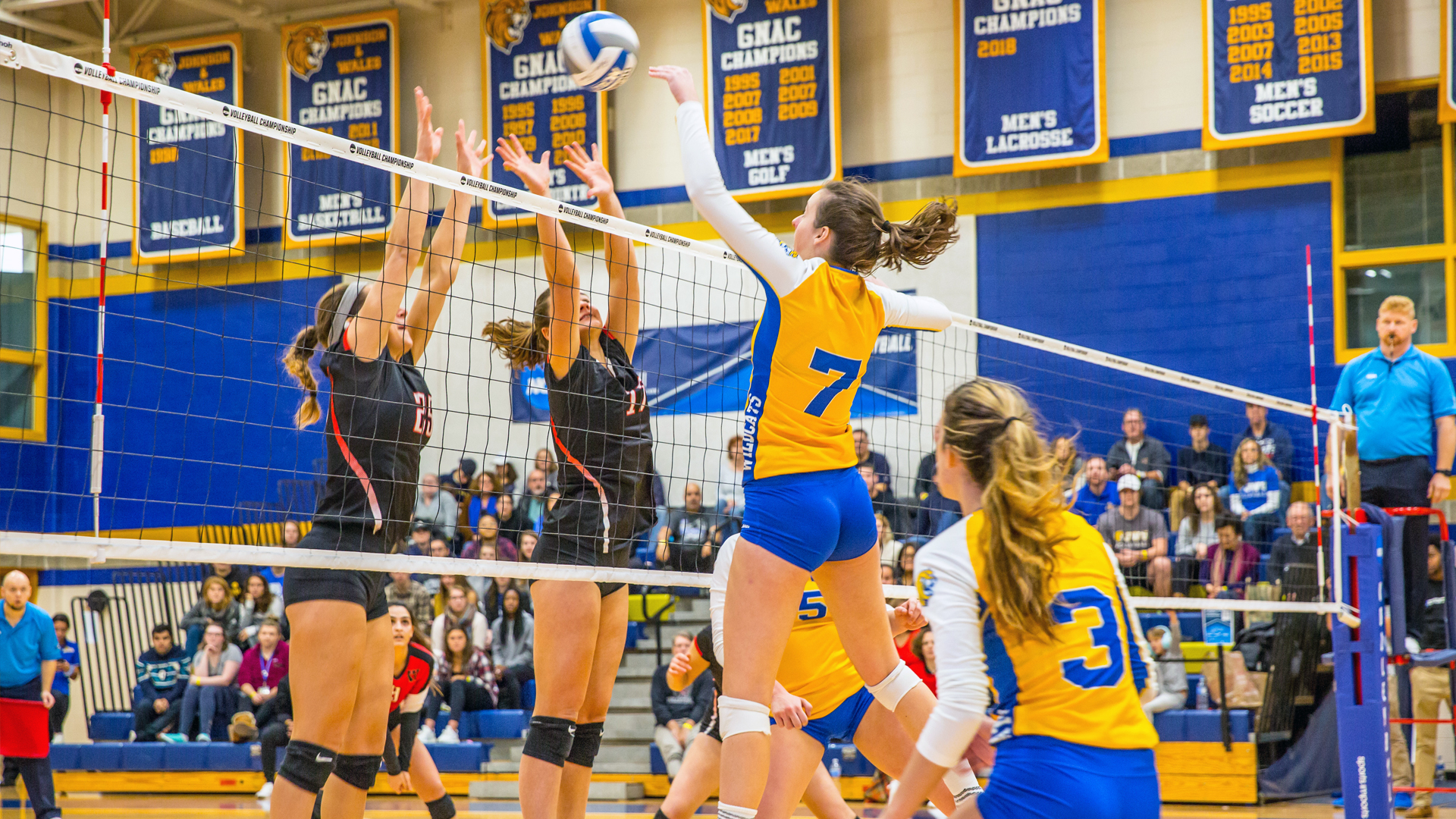
Hi! My name is Kate Walker and I am a middle blocker on the Johnson & Wales women’s volleyball team. I am a third year Psychology student planning to go into clinical social work and provide therapy to teens and adolescents. In high school, I took an AP psychology class and immediately knew that I wanted my career to be in Psychology.
Being on a sports team in college is extremely time consuming and can be stressful at times, but I wouldn’t have it any other way. This season, our opening tournament was held in Southern California and was exciting for our team as many of us are from California, including me. At this tournament, we beat the defending national champions, Claremont-Mudd-Scripps, which gave us the confidence we needed for our challenging season.
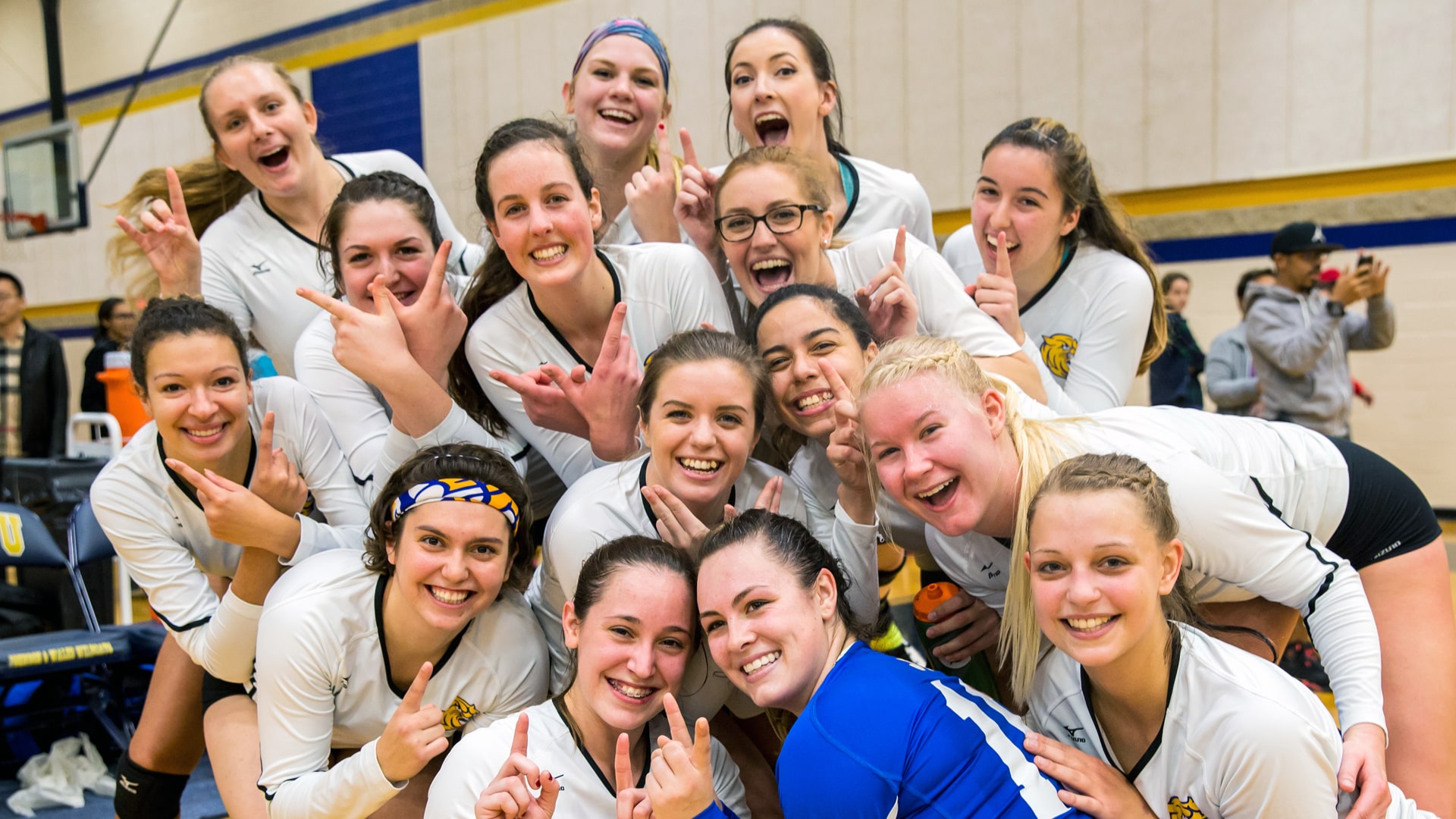
Time management is key when juggling volleyball and schoolwork. To give you an idea of what it is like to be a member of the women’s volleyball team, here is a look at my typical week:
Every day, Monday through Thursday, I leave my house at 8:30am to catch a bus to our Downcity Campus where I have classes from 9am to 1:30pm. Then, I catch a bus to the Harborside Campus and run home to make myself lunch before practice. Sometimes I try to get some homework done before practice, but that usually doesn’t happen.
After I chow down on lunch, I head out to the training room at 3pm to receive heat treatments and see the athletic trainer about different injuries. Practice is from 4–6pm. After practice, I go home, make dinner, shower and then begin my homework. Some days are busier than others because our game schedule fluctuates from week to week, with two to three games each week.
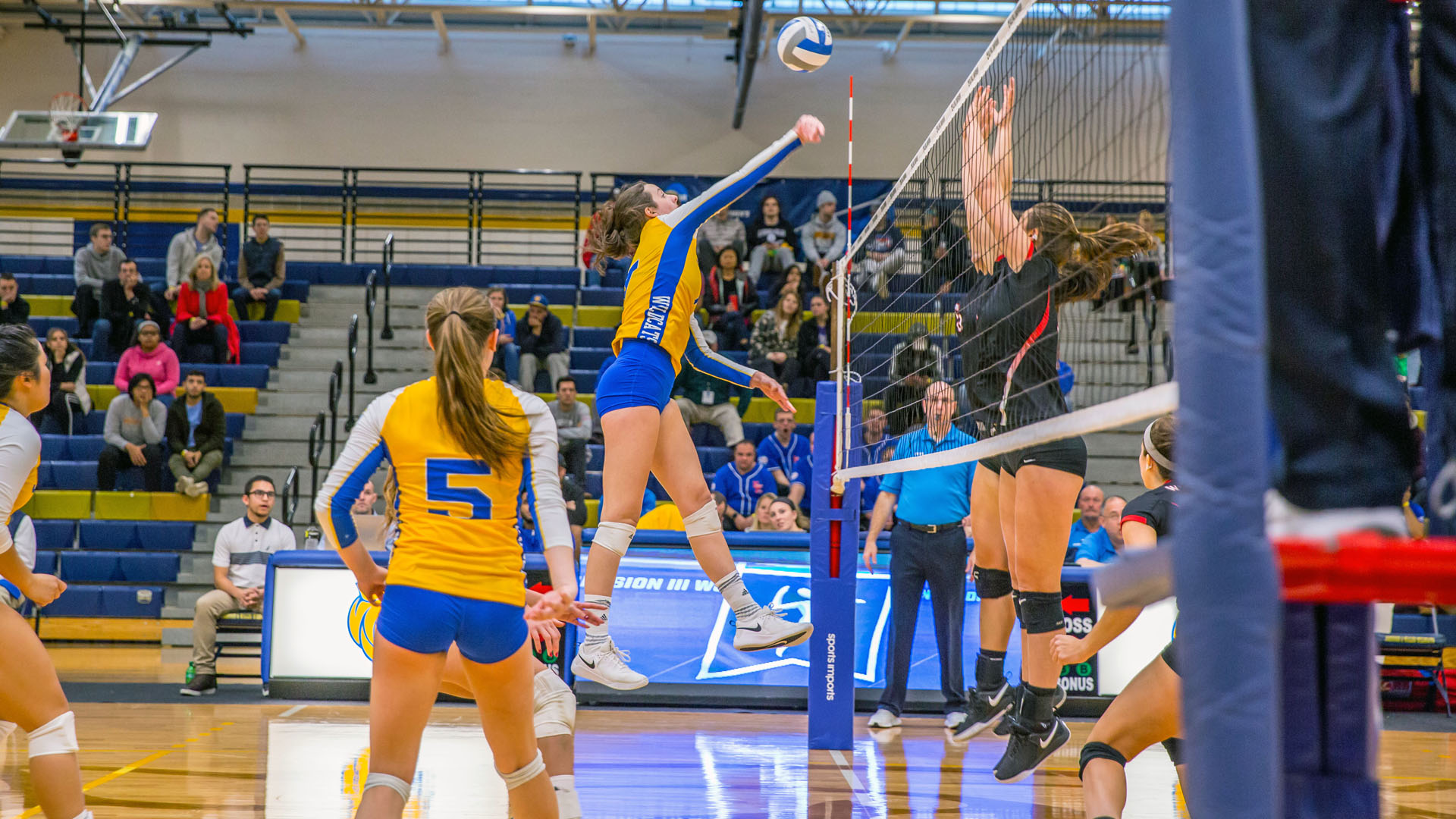
On Monday, we are usually a little rusty during practice after having Sunday off, which always leads to some funny incidents and stories. Tuesday's schedule is the same as Monday's, but we've worked through the rust.
By Wednesday, our patience has usually paid off and we’ll get to play a conference game, even after a day of classes.
For Thursday, after classes, we have a typical two-hour practice, but we add in an hour of weightlifting either before or after practice.
Friday means no classes, but we usually have an away game. Depending on which team we play, the bus ride can be anywhere from 1–4 hours long. As student-athletes, we have gotten very good at doing homework, such as writing essays and class readings, during these long bus trips.
Over the weekends during this past season, we played two games every Saturday throughout September and October.
Finally, it is Sunday, our day off. Many of us continue treatment for recurring injuries or, if need be, we see the athletic trainer.
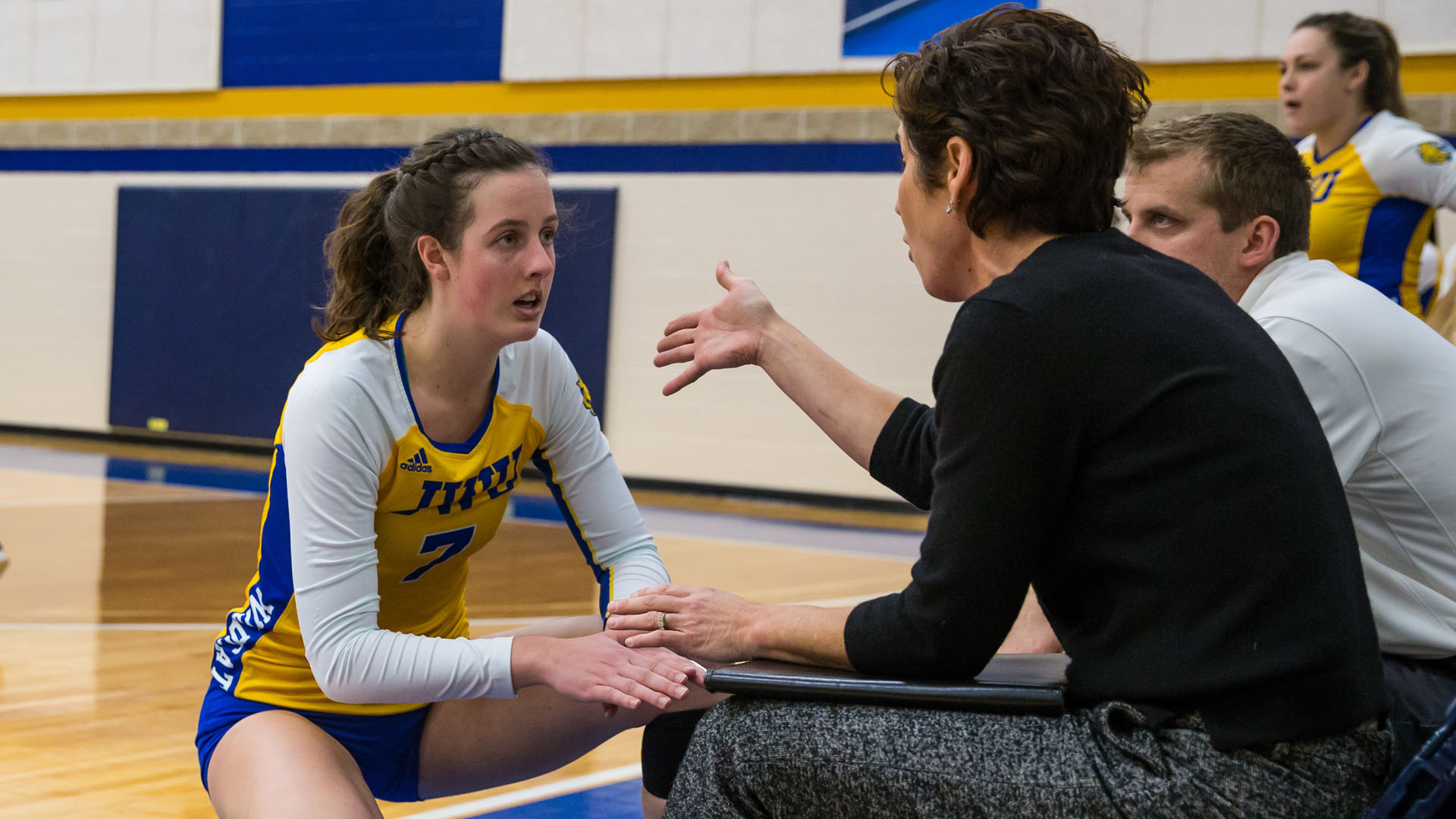
Don’t Let it Get You Down
An injury is common in a game where you are willingly throwing yourself onto a hardwood floor. Many players suffer knee injuries from all the jumping and landing involved in volleyball, and some develop tendinitis in joints due to the repetitive movements of the sport. During my freshman year, I tore the labrum in my right shoulder (my hitting arm). This past year, our starting setter, Brylee Frank, was told she had a slipped disk in her neck. Both of us continued to play through our injuries; some people call us crazy, but it shows how committed we are to our sport.
For my particular injury, I see a physical therapist, Casey, about 2–3 times a week. She helps me keep my shoulder loose and in good enough shape so I can continue to play. These PT visits usually consist of an eastern medicine technique known as “cupping,” which involves Casey suctioning special cups to any part of my shoulder. This form of therapy is used to help with pain, blood flow and deep tissue injuries. Cupping may look and sound scary, but I actually find it quite relaxing and it helps keep my shoulder muscles from becoming so tight that I cannot lift my arm above my head.
"Being on such a successful team ... allows me to continually push myself to be the best player I can be."
Glad to be Part of the Team
As a Psychology major, being on a team is helpful because I get to be so close to my teammates and see each of them grow during their time on our team and at Johnson & Wales. And, whenever we have prospective JWU students come to tour the school and meet the team, I always encourage them to come to Johnson & Wales and to join the women’s volleyball team!
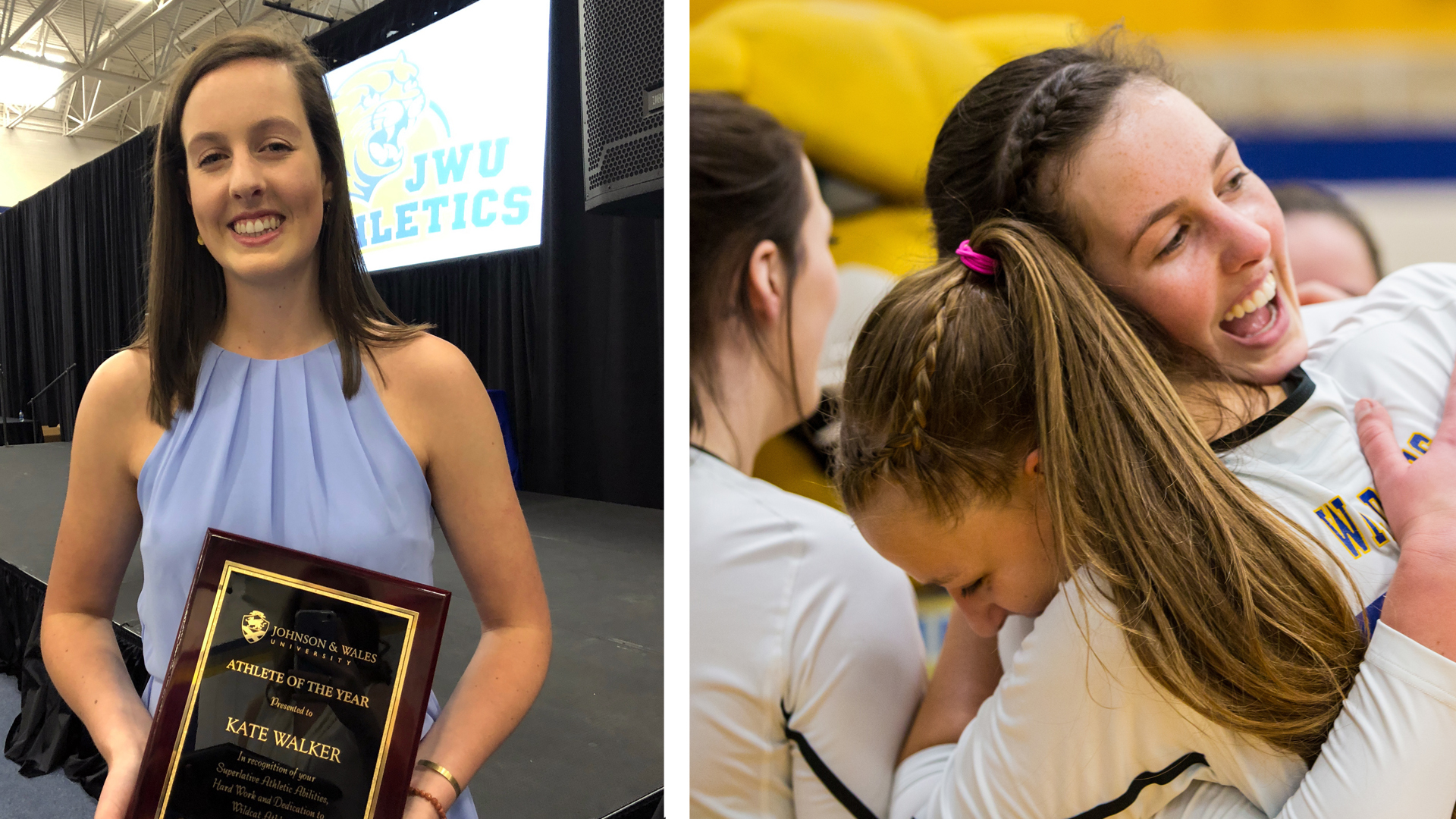
Being on such a successful team is extremely fulfilling and allows me to continually push myself to be the best player I can be.
Our coach always expects us to work hard, and we have come to expect that of each other, too. I’ve been on the team for 3 years and the experiences I’ve had and the memories I’ve made will last a lifetime. I'll always be grateful I had the chance to play volleyball in college and I’m incredibly excited about our upcoming season — our team is hungry for a national championship!
